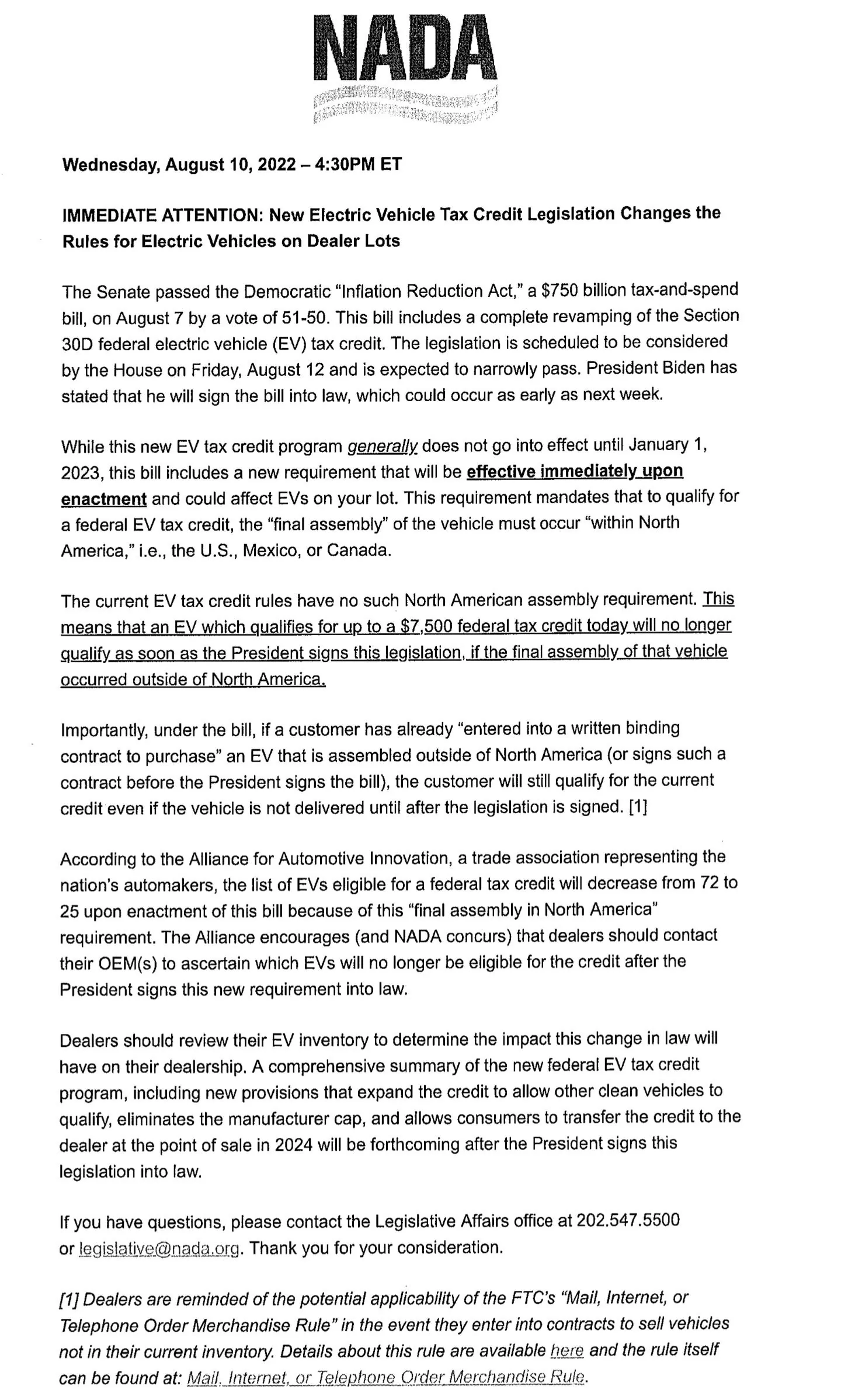hturnerfamily
Well-known member
- First Name
- William
- Joined
- Jan 8, 2022
- Threads
- 48
- Messages
- 2,199
- Reaction score
- 2,738
- Location
- rural Georgia
- Vehicles
- 22 LIGHTNING PRO IcedBlueSilver 8/23/2022
- Occupation
- Owner
I believe an Order DEPOSIT should clearly be acceptable as any 'binding contract' that the 'new' bill might be referring to, even if you think that anything that happens before 1/1/23 would even be affected by this 'new' bill. They are not going to 'back track' and take away provisions from a previous bill that have already been relied on for current purchases, and ORDERS. We, as tax payers, can't control how long it takes for a vehicle to be produced. We ORDERED in good faith, expecting a product to be delivered that the current laws of the time have precedent over.
Are there some of us who might NOT receive our vehicle before 12/31/22? Yes, especially if you are just now being allowed to order a 2023 model, but any of those folks ALREADY have information about this 'new' bill, and are not able to then claim that it shouldn't affect them. The rest of us who've reserved and ORDERED a vehicle before this bill was even brought to light should not have any concerns.
Are there some of us who might NOT receive our vehicle before 12/31/22? Yes, especially if you are just now being allowed to order a 2023 model, but any of those folks ALREADY have information about this 'new' bill, and are not able to then claim that it shouldn't affect them. The rest of us who've reserved and ORDERED a vehicle before this bill was even brought to light should not have any concerns.
Sponsored



